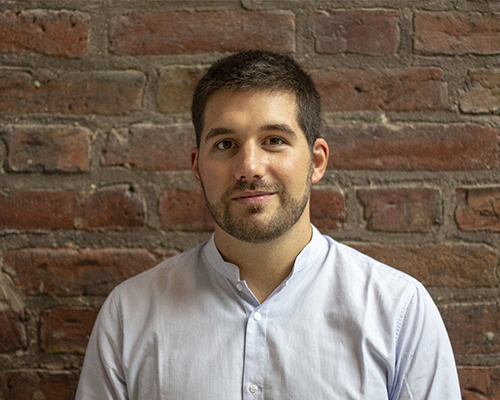CBH students call admitted students from all over the world
For the past two weeks, CBH's master's students have been calling newly admitted students from New Zealand to Peru. The goal is to get more students to accept their places at KTH.
At the beginning of April, students from all over the world received their selection results from KTH. Since then, the international students who have been admitted to CBH's master's programmes have been contacted by current master's students.
Every year, KTH holds the project Call-up week, something all CBH's master's programmes participate in. About 20 students from the school's programmes call the newly admitted students via Zoom. They have private conversations about everything from the programme's content, to what it is like to live in Stockholm, where to buy food and how to cope with the cold winter months.
Most students who work for CBH received such calls before they started at KTH. In surveys from the International Relations Office at KTH, the initiative usually almost exclusively receives high marks from the students who have been contacted, as it is a unique opportunity to ask personal questions to current students from the programmes. In many cases, the conversation was crucial in the decision on ultimately chose to take the step to come to Sweden and start the educations.
"My concern was mainly about the organization of my accommodation"

One of the students working for CBH this year is Nicolò dall'Acqua, who is studying the second year of the master's program in Sports Technology.
This is the second year you are working with Call-up week. How do you find it?
"I think it is a valuable opportunity for those who have decided to study at our University to better organize themselves before their arrival and stay in Stockholm. I also think it is exciting that they can receive insights on the programme from someone already enrolled."
How many students have you contacted, and where are they from?
"In the two years I took part in Call-Up Week, I contacted a total of 35 admitted students. Most of them come from outside the Europe, such as India, Pakistan, Iran and China. The rest are generally from within the EU/EEA, like Spain, Iceland, Germany and Switzerland."
What kind of questions are the students having?
"Students outside the EU / EEA area are more interested in the job opportunities that a degree from the programme will allow them to have - rightly because they want to know if it is worth moving to another continent and paying the tuition. Unfortunately, I'm having no data regarding the recruitment rate of my programme, since I belong to the first batch of students from Sports Technology and therefore there is no data available yet. I was only able to share only dated survey results, and it did not seem to me that they were satisfied with my answer. Those who come from the EU / EEA are more worried about finding a home."
What kind of questions did you have before coming to Sweden?
"Coming from Italy, my concern was mainly about the organization of my accommodation because, in the months prior to my departure for Sweden, I really went crazy to find a room. The girl who called me was a final year student in Medical Engineering, and she didn't know much about my programme, as it hadn't started yet. When it was my turn to ask questions during Call-up week, it was much more about the temperature of the days, how to cope with the lack of sun, etc.
Text Kenneth Carlsson
